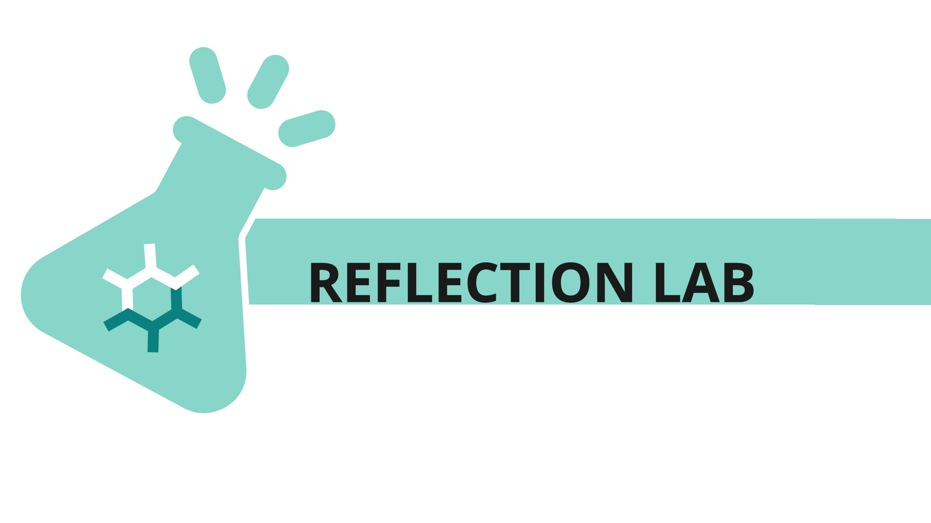Reflection Lab
Reflection is a core competence necessary in the 21st Century Engineering skillset, here we explain you why. We see this echoed throughout our faculties, other institutions and entities, visions and other strategic positioning documents. However, the implementation in our practice can take countless forms. Reflection Lab is where we condense our experience and tools into themed, concise and hands-on modules for educational practitioners (perhaps like you). Here you get familiar and experiment with reflection in your own educational context.
Here is the overview of those modules; you can read more about them below!
- Grip on Reflection: Gain an outlook on reflection and pick an educational situation where you see a need for reflection emerge.
- Equipped with Reflection: Conceptualise an intervention suitable for your context, prototype it, and experiment with it in your own environment.
- Embedding Reflection: Optimise your prototype to improve the embedding of this innovation into your local system context.
Check below the details of each module.
If you haven’t yet, you can join us for the upcoming edition of Reflection Lab! Starting in September, we are thrilled to present an iteration of these modules, that aim to inspire you to bring reflection to your context. Take a look at our agenda to find out more about the specific dates and module contents. If you're eager to be a part of this reflective experience, feel free to reach out. Don't miss this chance!
-
The first module of Reflection Lab is a first approximation to the concept of Reflection and its application in educational settings. In this session, you will:- Get some basic concepts on reflection, such as Reflection Domains (further explained in the White Paper "100 Days of... Reflection: Reflection in Engineering Education” ), Transformative Reflection, and an explanation of the background and way of working of the Reflective Engineer Team.
- Create a collective outlook the role of reflection in present and future education, based on the Domains: identifying on what students and practitioners currently reflect on, and where future-proof engineers should reflect on.
- Explore the diversity of reflection and discuss its changing and emerging needs in relevant (educational) contexts.
- Develop your own perspective on reflection: What is it? How to use it? And to what purpose?
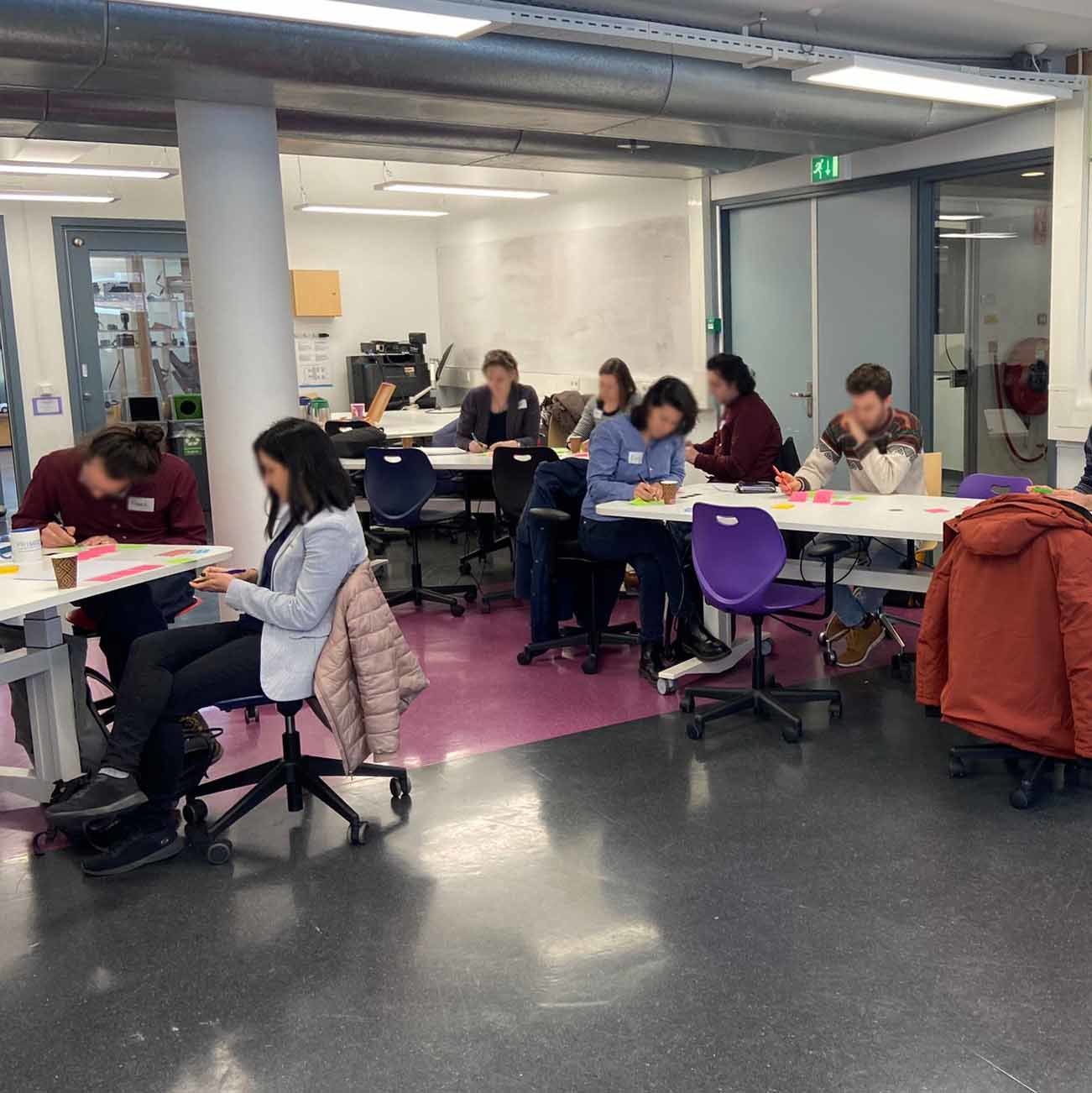
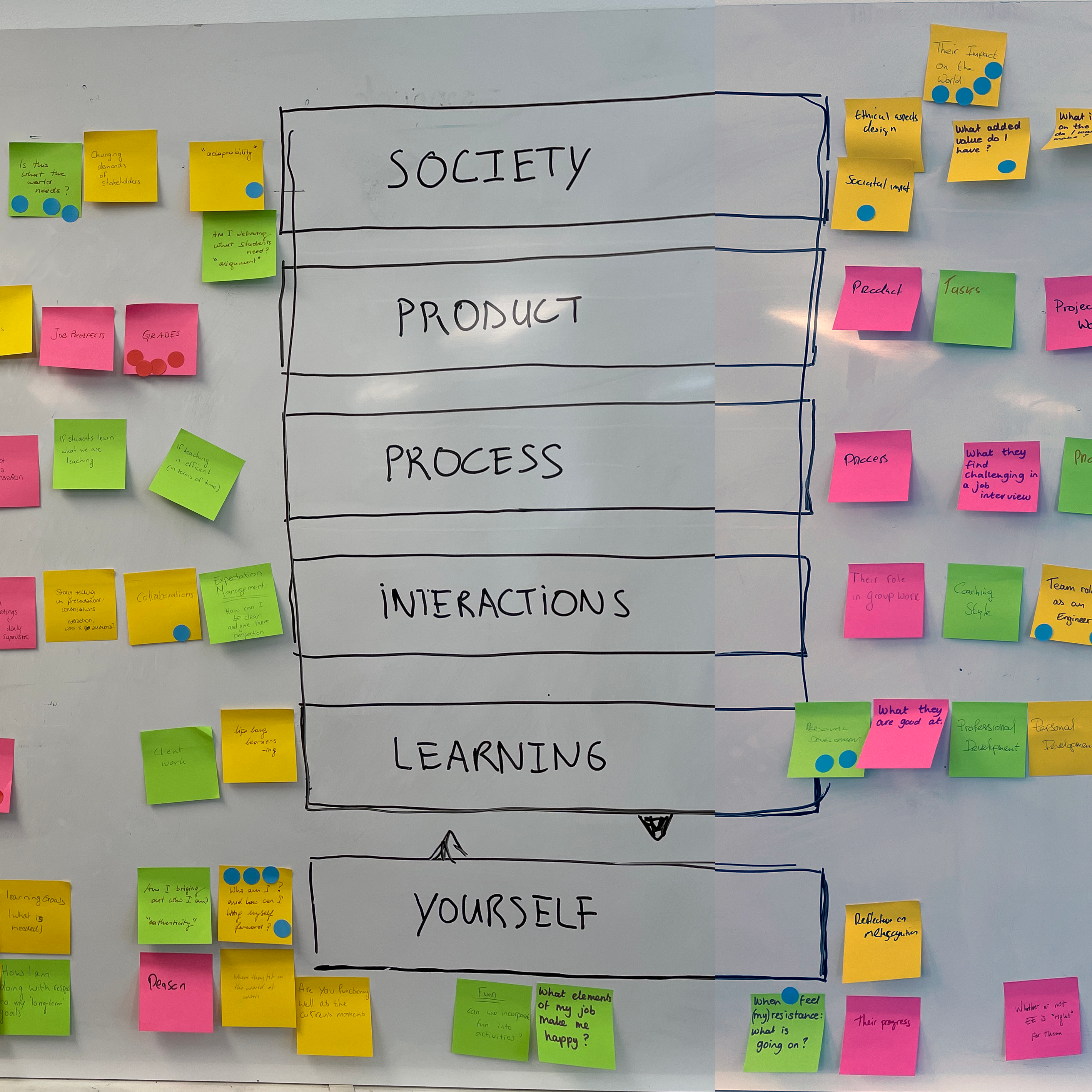
-
In “Equipped with Reflection” we get very practical! We delve into where reflection is particularly relevant in your own context and how you can design for it. On that line, in the second session of reflection lab we will:- Explore situations in which you see a potential reflective impact in your context (classroom, practice, mentoring, etc).
- Choose a particular situation that you want to tackle, and explore your own perspective, biases, and aspirations of change when approaching it. The idea is to find out what kind of reflection students miss (need) in this situation. The exercise concludes when you materialise those in a single Reflection Statement.
- Ideate possible solutions and create a Minimum Viable Prototype to test in your context.
- Confront your idea with the student perspective through critical dialogue. How is this intervention going to change (your) students.
- Be provided with an overview of the Reflective Engineer provisional Toolbox that you can use as an inspiration to develop and test your intervention.
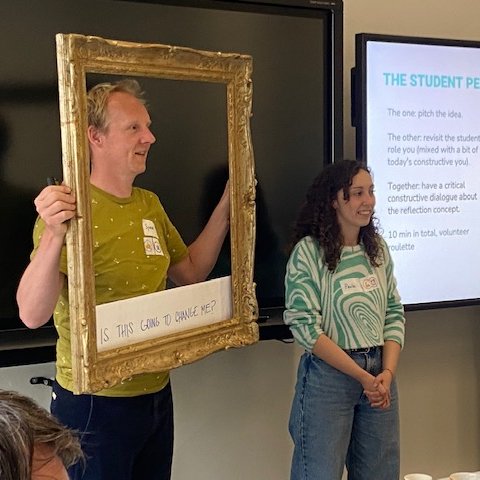
-
After following the first two modules, and testing your reflective prototype in your own context, this session will address the question: (how) will your prototype be resilient enough in the educational system in the long run? This module facilitates a first step from prototype to a locally optimised reflection innovation in the following way:- First, we “go nuts” iterating on your reflective prototype freely, leaving our well-known constraints behind.
- Once we got loose with the ideation process, we bring the systemic perspective to it using Hamza, D.M. and Regehr, G. Eco-normalization model (see below), aimed to evaluate the longevity of innovations in context..
- In peers, you will use card prompts from the different stakeholders depicted in the model to iterate on your educational innovation. Each stack of prompts is based on the overlaps between your innovation, the system it will be operating within and the people doing the work.
- We conclude the session by gathering all your insights in a template that will lead to the next iteration of your prototype. Lastly, you will check if those are aligned with the aspirations of change of your environment: your department, your faculty, institution, and our society.
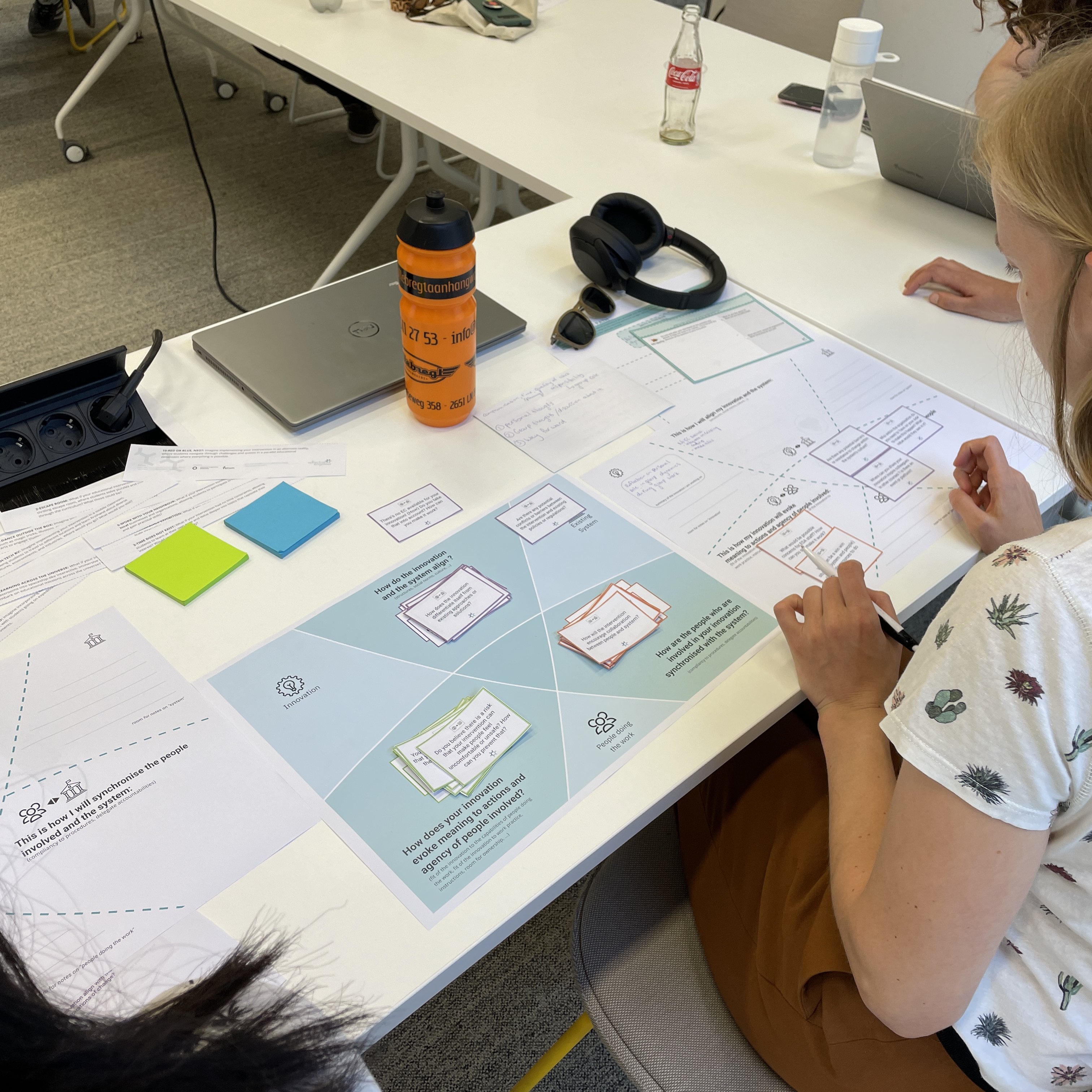
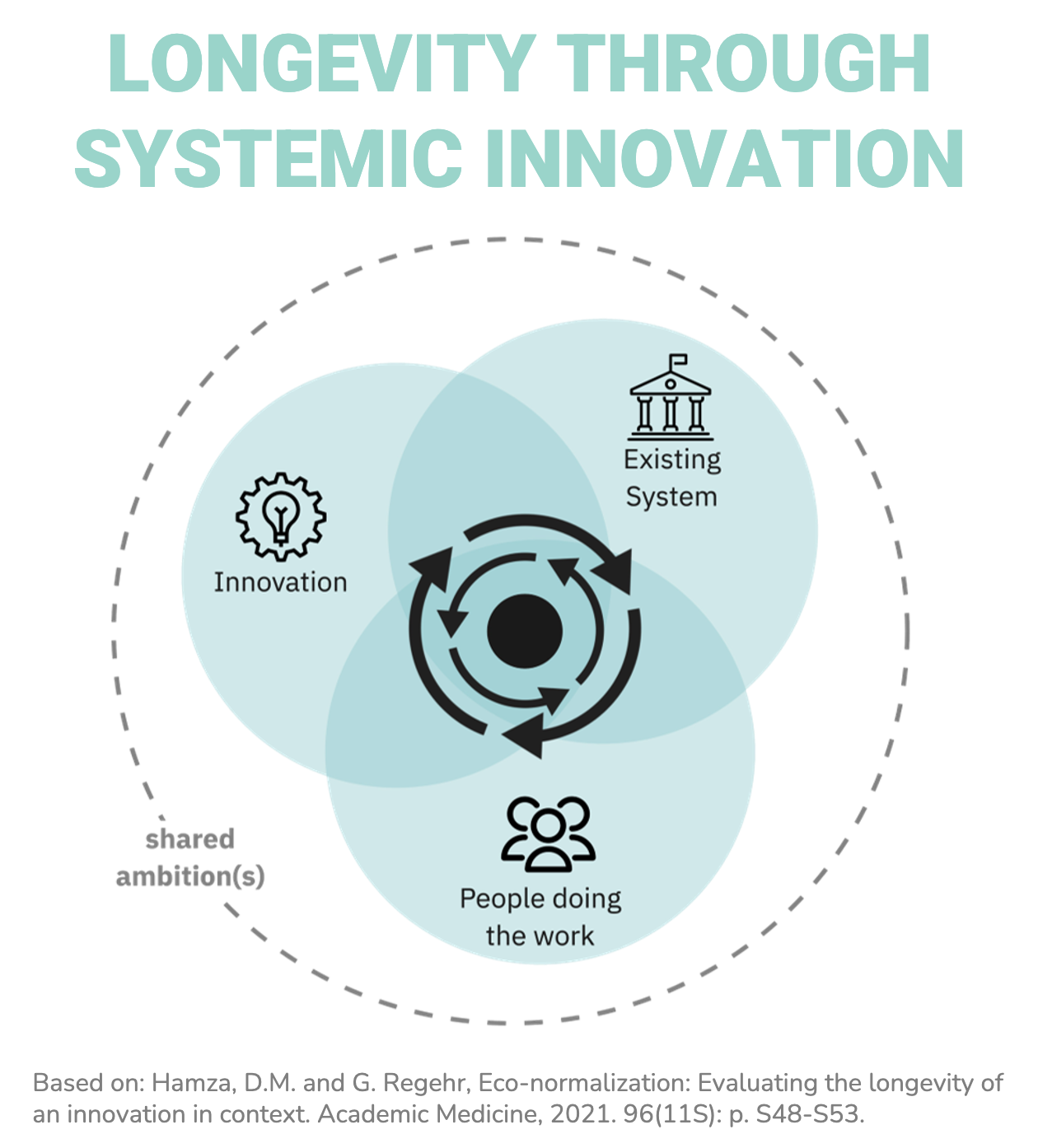
Experiences
“In my course I had held an online survey asking students to evaluate their peers on the performed group work, but the students’ responses were mostly an assessment instead of reflective feedback. During Reflection Lab I created an additional workshop to this questionnaire, that had students discuss their group work and dynamic with help of a template, steering them in the direction of constructive feedback. The subtle difference between assessment and feedback, and how to allow students to experience the latter is my main take-away from the Reflection Lab sessions!”
